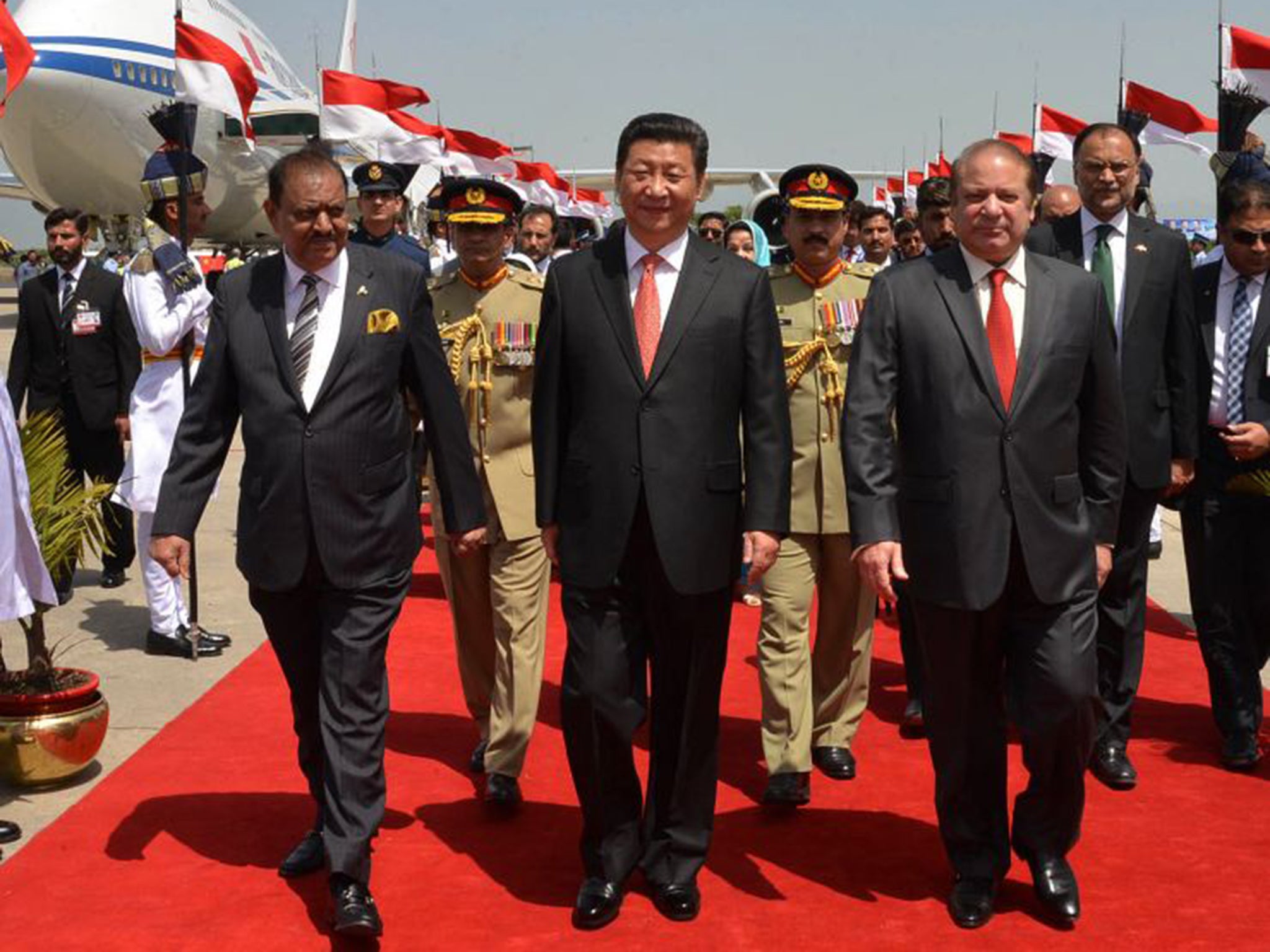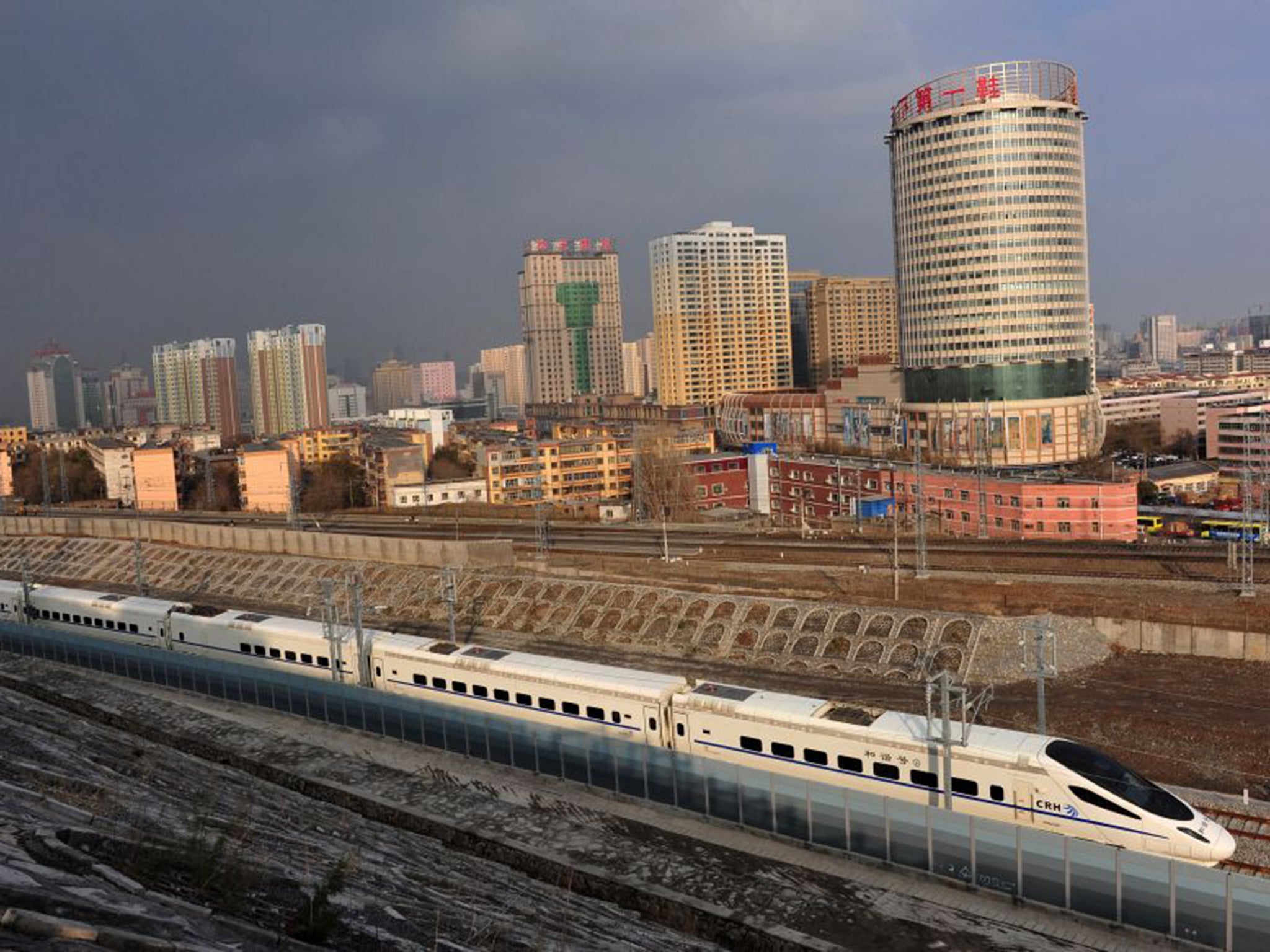China unveils £30bn plan to link to Pakistan with 'economic corridor'
It will be a huge step in China’s effort to build a modern equivalent of the ancient 'Silk Road' from central and western Asia through to the Middle East and Europe

President Xi Jinping has unveiled plans for £30bn of infrastructure projects in Pakistan, designed to link it with China in a new “economic corridor” between the two countries.
The scale of the spending announced after he flew to Islamabad will eclipse the £21bn the US has given to Pakistan since 2002, and dramatically underscored Beijing’s growing influence across Asia.
It will be used to connect China’s western Xinjiang province with Pakistan’s southern port of Gwadar, which is on the Arabian Sea, and will involve energy deals and a network of roads, railways and pipelines.

At an air force base near Pakistan’s capital, Prime Minister Nawaz Sharif yesterday welcomed President Xi with a fighter jet fly-by show and a military honour guard. Mr Sharif told Chinese business chiefs accompanying President Xi: “We will work hand in hand with you to remove any obstacle in your way to ensure timely completion of the planned projects.”
Ahsan Iqbal, Pakistan’s minister for planning and development, said that work on the projects would begin right away. He described the deals as a “milestone in our history” and “proof of our great bond with China”.
It will be a huge step in China’s effort to build a modern equivalent of the ancient “Silk Road” from central and western Asia through to the Middle East and Europe, a strategic plan described by Mr Xi as the “One Belt, One Road” project.
It will make it easier to export the products of its factories and to import the raw materials needed for its steadily growing economy – on course to overtake that of the US in the next 20 years. Around £23bn will be spent on energy projects in Pakistan with the remainder funding the transport infrastructure.
The network of roads, railways and pipelines will pass through Pakistan’s poor Baluchistan province where a long-running separatist insurgency, which the army has failed to bring under control, will raise questions about the feasibility of the plan.
Which countries have nuclear weapons?
Show all 14China is also worried about Muslim separatists from Xinjiang teaming up with Pakistani militants, including those who have brought jihadist terror to parts of the country. Earlier Mr Xi said of the risks involved: “Our cooperation in the security and economic fields reinforce each other, and they must be advanced simultaneously.” He called for efforts to bring peace to Afghanistan, where Pakistan is keen to restrict the influence of its rival India.
China is also keen to forge stronger economic ties with India, its traditional ally in the region, with Indian Prime Minister Narendra Modi expected to visit Beijing in the next few weeks.
There is scepticism among diplomats and other observers about Pakistan’s ability to deliver security to China’s project. A Western diplomat was quoted by the Financial Times as saying: “If Pakistan fails to end the Taliban threat, how will there be enough stability to let the Chinese projects continue?”
The expansion of China into Pakistan reflects its growing reach within Asia. Earlier this month it announced plans for a rail tunnel beneath Mount Everest, linking Chinese-controlled Tibet with Nepal – which has previously been forced to rely mainly on India for its trade.
China is also building a huge new military and cargo port on the southern tip of Sri Lanka, designed as a regional hub that will enable it to exert more power over the crucial ocean trading routes that link it with Africa and the Middle East.
Wang Dehua, Professor of South Asian studies at the Shanghai Institute for International Strategic Studies, said that President Xi’s visit would demonstrate that “China has high regard for its neighbours”. He added: “Both nations have great expectations of each other in terms of the ‘One Belt, One Road’ initiative. Pakistan is a key post for the connectivity plan.”
Subscribe to Independent Premium to bookmark this article
Want to bookmark your favourite articles and stories to read or reference later? Start your Independent Premium subscription today.

Join our commenting forum
Join thought-provoking conversations, follow other Independent readers and see their replies
Comments